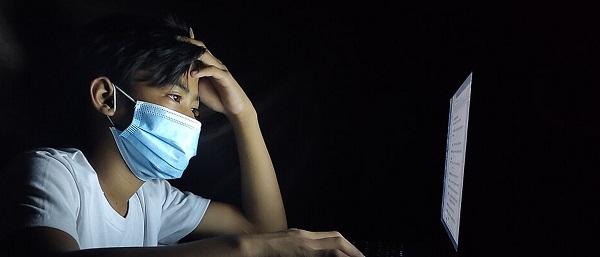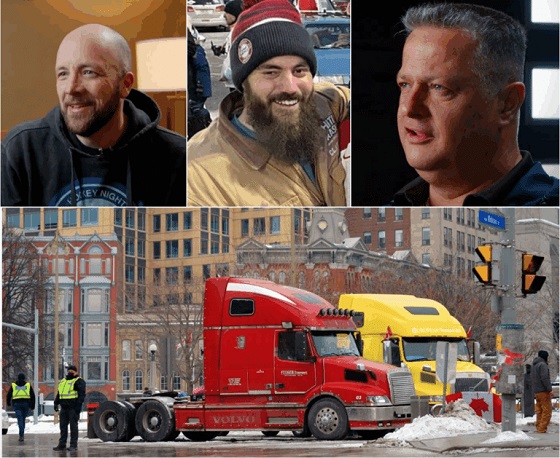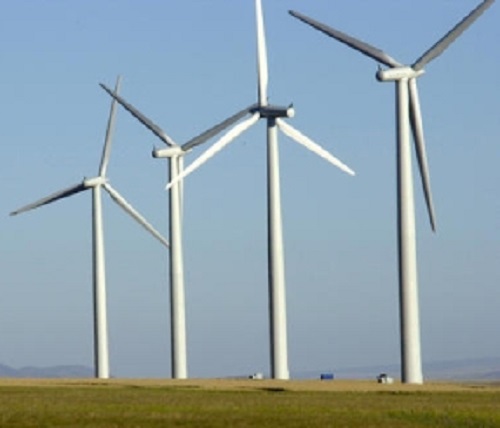COVID-19
Rep. Paul Gosar introduces bill to end vaccine manufacturer immunity from injury lawsuits

From LifeSiteNews
Rep. Paul Gosar’s End the Vaccine Carveout Act would eliminate the general immunity vaccine manufacturers enjoy from vaccine injury civil suits under the federal National Childhood Vaccine Injury Act of 1986.
Republican U.S. Rep. Paul Gosar of Arizona introduced a bill Thursday that would end pharmaceutical companies’ shield against liability for any potential harmful effects of the vaccines they manufacture.
H.R. 9828, the End the Vaccine Carveout Act, would allow individuals to “bring a civil action against a vaccine administrator or manufacturer in a State or Federal court for damages arising from such injury or death,” according to an advance copy of the text provided to LifeSiteNews.
This would eliminate the general immunity vaccine manufacturers enjoy under the federal National Childhood Vaccine Injury Act of 1986, which instead establishes a compensation program for victims. Gosar’s bill allows for civil actions to be pursued regardless of whether a victim has filed a petition with the program, although ultimately receiving an award from one would invalidate a petition to the other.
“Government bureaucrats and scientists responsible for approving vaccines are in bed with Big Pharma, often owning pharmaceutical stocks, serving as consultants and receiving lucrative contracts from pharmaceutical companies that pressure them to produce favorable results which is in direct violation of federal law,” Gosar said in a press release. “Big Pharma doesn’t deserve a get-out-of-jail-free card for injuries caused by their harmful vaccines.”
The question of vaccine safety has become more mainstream in recent years due to the controversy surrounding the COVID-19 vaccines, which were developed and reviewed in a fraction of the time vaccines usually take under the Trump administration’s Operation Warp Speed initiative.
A large body of evidence identifies significant risks to the COVID vaccines. Among it, the federal Vaccine Adverse Event Reporting System (VAERS) reports 37,910 deaths, 217,931 hospitalizations, 21,917 heart attacks, and 28,602 myocarditis and pericarditis cases as of September 6, among other ailments. U.S. Centers for Disease Control and Prevention (CDC) researchers have recognized a “high verification rate of reports of myocarditis to VAERS after mRNA-based COVID-19 vaccination,” leading to the conclusion that “under-reporting is more likely” than over-reporting.
An analysis of 99 million people across eight countries published February in the journal Vaccine “observed significantly higher risks of myocarditis following the first, second and third doses” of mRNA-based COVID vaccines, as well as signs of increased risk of “pericarditis, Guillain-Barré syndrome, and cerebral venous sinus thrombosis,” and other “potential safety signals that require further investigation.” In April, the CDC was forced to release by court order 780,000 previously undisclosed reports of serious adverse reactions, and a study out of Japan found “statistically significant increases” in cancer deaths after third doses of mRNA-based COVID-19 vaccines, and offered several theories for a causal link.
In Florida, an ongoing grand jury investigation into the vaccines’ manufacturers is slated to release a highly anticipated report on the shots, and a lawsuit by the state of Kansas has been filed accusing Pfizer of misrepresentation for calling the shots “safe and effective.”
Yet so far, Big Pharma has largely escaped accountability thanks to both the aforementioned 1986 law and the federal Public Readiness and Emergency Preparedness (PREP) Act of 2005.
According to the Congressional Research Service (CRS), the PREP Act empowers the federal government to “limit legal liability for losses relating to the administration of medical countermeasures such as diagnostics, treatments, and vaccines.” Near the beginning of the 2020 COVID-19 outbreak, the Trump administration invoked the Act in declaring the virus a “public health emergency.”
Under this “sweeping” immunity, CRS explained, the federal government, state governments, “manufacturers and distributors of covered countermeasures,” and licensed or otherwise-authorized health professionals distributing those countermeasures are shielded from “all claims of loss” stemming from those countermeasures, with the exception of “death or serious physical injury” brought about through “willful misconduct,” a standard that, among other hurdles, requires the offender to have acted “intentionally to achieve a wrongful purpose.”
Many hope that by going after Big Pharma for misrepresentations surrounding their products rather than the products themselves, efforts like the Kansas suit can circumvent that hurdle to impose consequences on those responsible for the shots.
COVID-19
Why FDA Was Right To Say No To COVID-19 Vaccines For Healthy Kids


From the Daily Caller News Foundation
The FDA’s decision not to authorize COVID-19 vaccines for healthy children has drawn criticism. Some argue: If parents want the shot, why not let them get it for their kids? That argument misunderstands what FDA authorization means — and why it exists.
The FDA often approves drugs that carry risks or have imperfect evidence of effectiveness. This is a tradeoff we sometimes accept for people who are ill: when someone is already sick, the alternative is untreated disease. Vaccines are different. They are given to millions of healthy children. This requires a higher standard, not just evidence for safety and immune response, but clear, durable clinical effectiveness. Approval for optional use isn’t neutral; once the FDA authorizes a vaccine, it carries the full weight of institutional endorsement.
Measles provides an example for how the FDA approaches vaccine approvals. Before the measles vaccine was introduced in 1963, the U.S. saw 3 to 4 million infections, ~48,000 hospitalizations, ~1,000 cases of encephalitis, and 400-500 deaths each year. Infants bore the brunt of the most severe outcomes.
Dear Readers:
As a nonprofit, we are dependent on the generosity of our readers.
Please consider making a small donation of any amount here.
Thank you!
That created a natural instinct: why not vaccinate the youngest and most vulnerable? The initial measles rollout was to 9-month-olds, but within two years that timing was changed to children who were at least 1 year of age. This was not because younger babies were not at risk or that the vaccine was riskier for them, but because it just didn’t work well enough to justify a universal campaign.
The knowledge of the particular risk younger infants face has led to continued research on the effectiveness of measles vaccination in that group. A 2023 trial of the combined measles/mumps/rubella (MMR) vaccine in infants aged 5-7 months, and subsequent safety and immune studies in 2024 and 2025, produced consistent results—safety and the ability to generate antibodies were demonstrated, but a durable response and protection against hospitalization were not.
That is why the FDA does not approve MMR for routine use in healthy children younger than 12 months of age. It is also precisely why getting back to herd immunity for measles is so essential: the youngest infants can only be protected if the rest of us are immunized.
What’s the evidence for COVID-19 vaccination in infants and children? It generates robust antibodies, often higher than in adults. But clinical benefits are modest, short-lived, and inconsistent. It is nowhere near the level of proof U.S. regulators require before making a vaccine universally available to healthy kids.
Some argue that even if benefits are modest, parents and pediatricians should be free to choose. But FDA authorization is not about personal preference; it is a stamp of approval for more than 70 million healthy children. Statistical safety is not enough. At that scale, even rare risks mean real harm to real children. COVID-19 vaccines were originally authorized in the hope that immune responses would translate into population-level benefits. For healthy children, the initial optimism sparked by early encouraging signals has steadily given way to three years of disappointing clinical results.
The lessons from measles are clear: safe but minimally effective isn’t enough. We don’t authorize MMR for 5-month-olds, even to parents who might want their children to get it. COVID-19 vaccines for healthy children should be judged similarly. This is not because there is a lack of any benefit, but because it doesn’t rise to the level we use for other vaccines. Only if and when proof of clinical effectiveness becomes available should authorization be reconsidered. At this time, the FDA is right to say no.
Monique Yohanan, MD, MPH, is a senior fellow at Independent Women, a physician executive and healthcare innovation leader, and Chief Medical Officer at Adia Health.
COVID-19
The Persecution of Canada’s “Other” Freedom Convoy Truckers

While thousands of serious criminal cases across Canada are dropped merely due to delays, many Convoy-related prosecutions on trivial charges continue more than three-and-a-half years later. The cases of Freedom Convoy truckers (left to right) Bern Bueckert, Clayton McAllister and Csaba Vizi (whose Volvo is shown at bottom) are still not fully resolved. (Sources of photos: (top left and right) screenshots from documentary Unacceptable?; (top middle) ThankYouTruckers.Substack; (bottom) Donna Laframboise)
On September 8, three and a half years after the 2022 Freedom Convoy departed Ottawa, and five long, stressful months after his trial actually ended, Robert Dinel walked out of court a free man.
Dinel, a Quebec heavy equipment operator who’d behaved entirely peacefully during the protest over Covid restrictions, had been charged with mischief and obstruction of police. Court proceedings were repeatedly delayed — four times alone just this year — until judge Matthew Webber of the Ontario Court of Justice finally stayed the charges on the grounds that Dinel’s Charter rights to a timely trial had been violated.
For Dinel, it was a relief. For Canadians concerned about freedom and justice, his legal ordeal was yet another example of a system gone off the rails.
Most Canadians are aware of the trials of convoy leaders Tamara Lich and Chris Barber, which ended in conviction; they are to be sentenced in October. Few may realize that many more protestors were charged, most for the relatively innocuous infraction of mischief, and have had their cases drag on and on through the courts for more than three years.
The record of Canada’s legal system clearly shows that mischief charges are routinely withdrawn before scarce and expensive court time is expended on relative trivialities. But when it comes to the truckers, the Crown attorneys at the Ottawa courthouse – employees of the Government of Ontario, not the federal government – appear to have lost all perspective. They are on a mission. The sheer intensity of the prosecution of Convoy members looks less like the fair administration of justice than revenge upon people who dared protest the arbitrary and oppressive measures of the Covid years.
The initial police crackdown itself was a mess. Those arrested were passed from police officer to police officer. Officials writing up the paperwork had no direct knowledge of what had actually transpired; extra charges appear to have been tacked on willy nilly. In Dinel’s case, the prosecution doesn’t even know the identity of the tactical officer who pointed a gun at his head and hauled him out of his vehicle on February 18, 2022.
In a police processing trailer four hours after his arrest, Dinel received a medical assessment from a paramedic. Seated and hand-cuffed throughout, the five-foot-three Dinel calmly and repeatedly told police he was in no fit state to be making decisions and that he wanted to speak to a lawyer. “I want to know what I’m signing,” he insisted. But the police officers, who outnumbered him ten-to-one, kept pushing him to sign an undertaking that he wouldn’t return to the protest area. The fact he never got his phone call – that he was denied his Charter right “to retain and instruct [legal] counsel without delay” – should have stopped this case in its tracks. The Crown chose to pursue it, anyway.
A week after Dinel’s mother died in July 2023, he suffered the first of four strokes. In December 2023, one occurred in the courtroom. “My whole face just seized up,” he recalls. “I had another stroke. My whole face drooped, then the judge freaked right out.” An ambulance was summoned and his trial was adjourned. “I hate court,” says Dinel. “It’s hard, you know. It’s stressful, it’s exhausting.” Rather than staying the charges on compassionate grounds, the prosecution continued, with Dinel accompanied by a service dog.
Nova Scotia trucker Guy Meister spent hours in the same paddy wagon as Dinel the day they were arrested. After travelling from his Nova Scotia home to Ottawa for court appearances more than a dozen times – at considerable expense – in May of this year Meister was found guilty of mischief, but not of obstructing police. In late July, he was sentenced to 20 hours of community service, six months’ probation, and ordered to pay a $100 victim surcharge.
The trial for Windsor, Ontario trucker Csaba Vizi began just this month, the same day Robert Dinel’s charges were stayed. Video broadcast around the world in February 2022 shows him being assaulted by multiple police officers after he’d exited his truck and knelt down in the snow with his hands behind his head. None of those officers were themselves charged following this violence. None were forced to raise tens of thousands in lawyers’ fees, as Vizi has. Even protesters who have endured the stress of a trial and been acquitted have still not always walked free and clear, because the Crown has often insisted on filing appeals. As a result, defence lawyers routinely advise Freedom Convoy protesters that their legal nightmare isn’t actually over until an additional 30 days have come and gone. In one instance, the Crown waited until the last afternoon of the last permissible day to file its appeal.
These are just a few examples of what’s been going on in Canada’s justice system, one already beset by long delays for cases involving far more serious crimes. Credible news reports suggest that the majority of criminal cases in Ontario aren’t even making it to trial, with sexual assault
charges dropped because of delays. Yet the Convoy prosecutions continue.
Many people insist Covid is over, that we should all move on. But the legal persecution of the truckers who bravely protested government overreach in the bitter winter of early 2022 is far from over.
Donna Laframboise is an independent journalist and photographer. A former vice-president of the Canadian Civil Liberties Association, she is the author of Thank You, Truckers! Canada’s Heroes & Those Who Helped Them.
The original, full-length version of this article was recently published in C2C Journal.
-

 Censorship Industrial Complex2 days ago
Censorship Industrial Complex2 days agoFreedom of speech under threat on university campuses in Canada
-

 Alberta1 day ago
Alberta1 day agoOttawa’s destructive federal energy policies and Premier Danielle Smith’s three part solution
-

 Business2 days ago
Business2 days agoCarney engaging in Orwellian doublethink with federal budget rhetoric
-

 Alberta2 days ago
Alberta2 days agoIs Alberta getting ripped off by Ottawa? The numbers say yes
-

 Energy2 days ago
Energy2 days agoCanada’s LNG breakthrough must be just the beginning
-

 Business2 days ago
Business2 days agoCourt’s ‘Aboriginal title’ ruling further damages B.C.’s investment climate
-

 Agriculture1 day ago
Agriculture1 day agoIn the USA, Food Trumps Green Energy, Wind And Solar
-

 Business2 days ago
Business2 days agoManitoba Must Act Now To Develop Its Northern Ports


